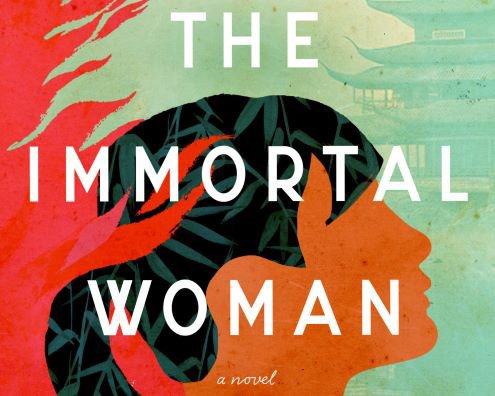Reading time: About 2 minutes
Although she never has enough time for writing, Su Chang says she always aspires to write a “child’s draft,” where she lets all the words pour out and doesn’t worry about rearranging them until later…
Su Chang is a Chinese-Canadian writer. Her debut novel The Immortal Woman, a sweeping generational story on China’s contemporary history and the fractured lives of new Chinese immigrants, is forthcoming from House of Anansi in March 2025. Her fiction has been recognized in Prairie Fire’s Short Fiction Contest, Canadian Authors’ Association (Toronto) National Writing Contest, ILS/Fence Fiction Contest, the Masters Review‘s Novel Excerpt Contest, Tennessee Williams & New Orleans Literary Festival Fiction Contest, among others.
I was excited to talk to Su Chang about how she approaches writing.
Q. Roughly how much time do you spend writing every day?
My writing hours vary because of my day job and my children’s needs. I try to write for one to two hours on most days, and if I’m on “vacation” or have a child-free weekend, I’ll write for eight hours.
Q. What’s a simple activity or habit that makes you a better writer?
Perhaps all writers will tell you reading is the single most important habit to be a better writer, and it’s completely true. It’s not “simple” though, and it certainly takes a lot of time and energy, but there’s no way around it. I try to read in the interstices of time as I go about the hectic and expensive modern-day living – on transit, waiting in lines, a few minutes before I pass out at night. It’s never enough. I wish I had read a lot more.
Q. What interferes with your writing?
Like most writers I know – the need to make a living.
Q. How do you persuade yourself to sit down to write on days when you really, really DON’T feel like doing it?
Because I never have enough time to devote to writing, when I do, I can always write. Just a quick mental reminder of the onslaught of day job and parenting duties awaiting me outside my writing time is enough to make me take full advantage of my writing hours. And if convincing myself to write something new doesn’t work, I’ll start by rewriting/editing a story or a chapter in its early drafts.
Q. Is there a particular motto or saying that you’ve found helpful for writing?
Any sentence lifted off Anne Lamott’s “Shitty First Drafts” chapter in her book Bird by Bird. For example: “The first draft is the child’s draft, where you let it all pour out and then let it romp all over the place, knowing that no one is going to see it and that you can shape it later.”
Q. Which stage of the writing process do you enjoy the most: researching, writing or editing/rewriting and why?
I believe if I were a full-time writer, writing the first draft would be my favorite part of the process. Yes, it’s scary to stare at a blank page for a while, but it’s definitely the most thrilling stage, especially if I could take Lamott’s advice to heart and pour out this “child’s draft.” It triggers some sort of feel-good hormones when my characters surprise me during the first draft. But since I’m a busy working mother, I currently like editing/rewriting a bit more, because it’s easier to find the time to do it.
Q. What’s the best book you’ve read (either fiction or non) in the last five years?
I never know how to pick a “favorite” book. If I can get into a book, I usually come away feeling like a changed person. So I’ll just list a few that had touched me deeply in the past few years (and sometimes I was late to the party): Far Cry by Alissa York, Wait Softly Brother by Kathryn Kuitenbrouwer, Chrysalis by Anuja Varghese, An Ocean of Minutes by Thea Lim, Homeland Elegies by Ayad Akhtar, The Disappeared by Kim Echlin, The Syrian Ladies Benevolent Society by Christine Estima, Butter Honey Pig Bread by Francesca Ekwuyasi.
Q. What book are you reading right now?
Feeding Ghosts: A Graphic Memoir by Tessa Hulls, and The Afterpains by Anna Julia Stainsby.
Q. What do you think is the biggest misperception that new writers have about the act of writing?
Once again, as Lamott said, the shitty first drafts lead to good second drafts and terrific third drafts. In my experience, it can take dozens of drafts to get to the “terrific” stage. Writing is all about rewriting.


